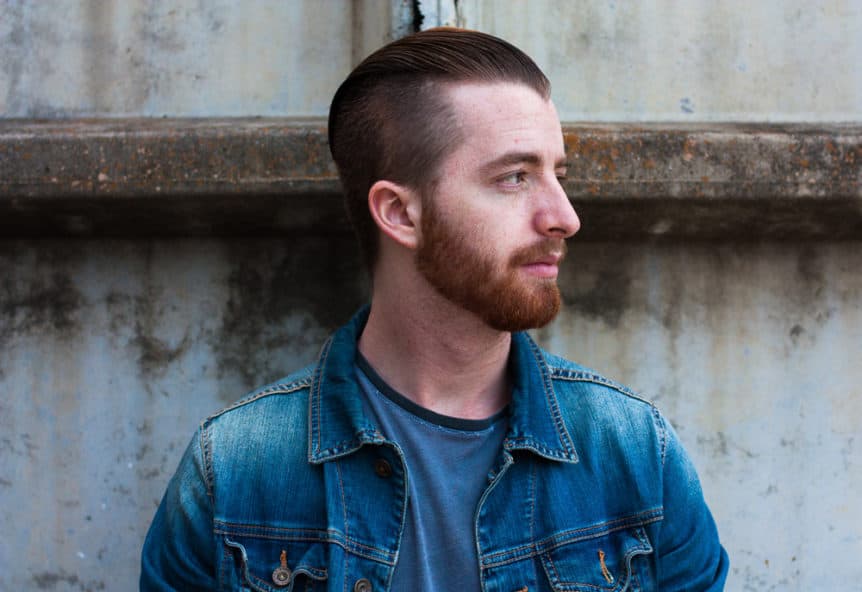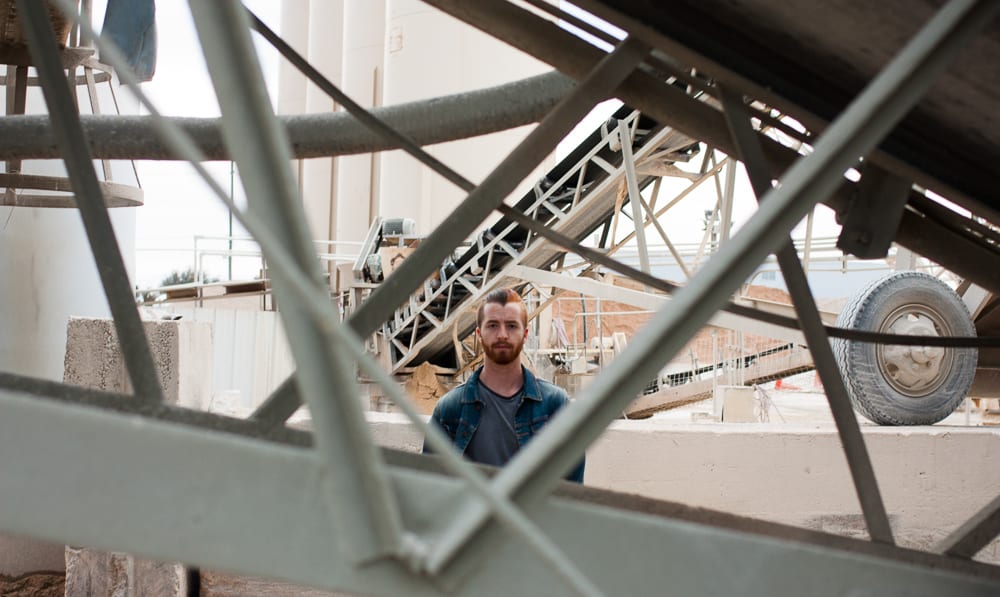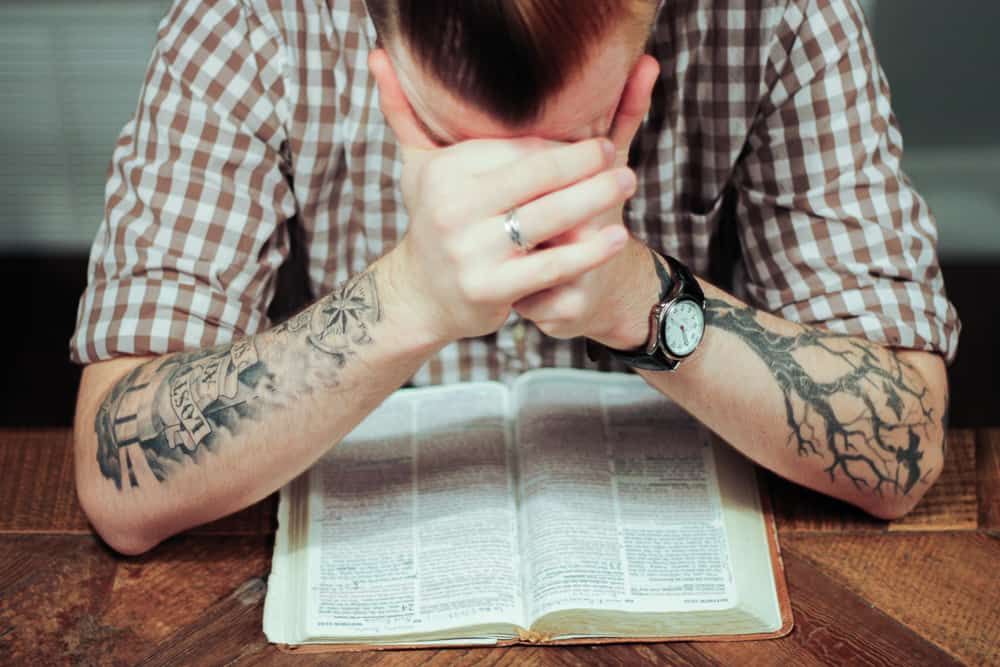
In a small town on the Texas-Mexico border, Matthew Brue stood in the driveway of Shining Light Rehabilitation Ranch and watched his father drive away. Alone at 17, miles away from his family for the first time, officially signed over as “property of the state,” Matthew turned around and sobbed. The 23-acre rehabilitation ranch, which unfurled in front of him, housed a community of hardened criminals with whom he would spend the next year as he grappled with his drug addiction.
Matthew grew up in a Christian home in Georgetown, Texas. But his early, legalistic experience with Christianity repulsed him, giving drugs the opportunity to cut in and woo him away from relationships with God or his family—the only chances he had at resisting the drugs’ romantic prowess.
Though the social aspect of drug use first enticed him, this innocent tryst quickly burgeoned into a full-blown addiction, which drew him away from his community of users and into isolation. Matthew found himself alone, snorting crushed painkillers off his piano, his reflection staring back at him—this, his new, and only, community.
Addiction led Matthew to a run-in with police, his first drug rehab experience, a relapse, and finally left him sobbing in the driveway of Shining Light. Even after all of this hardship, he never recognized his disobedience to God as the problem. The consequences of losing his family and the ease of his middle class existence set him in turmoil, and God remained far from his mind and heart. “I wasn’t looking for God. I couldn’t have cared less. I was perfectly fine in my own sin, until God lifted me out,” Matthew said.
A far cry from his comfortable home in Georgetown, Shining Light offered a filthy, cracker-box-sized room with no air conditioner, heater, hot water, Internet, cell phone or television. His new routine looked just as monastic. He woke at 5:00 am; recited Scripture with the other drug addicts, ex-convicts, murderers, rapists and MS-13 gang members in the program; read the Bible on his own; went to high school; and returned to the rehab facility to rejoin the others in ranch work until dusk.
Even still, his sobriety, newfound discipline, and rigorous biblical study failed to soften his heart. Matthew didn’t need God—he simply wanted to fulfill the requirements of the program and get back to his life. But after a conversation with the lead counselor of Shining Light, he realized that he had no life to return to. His family refused to let him move home unless he promised and proved to be finished with drugs for good. Realization of his homelessness buckled Matthew’s knees, and he cried out to God for the first time. God, however, didn’t come to him—God was already there, cutting in and wooing Matthew away from his sin and into His loving arms. And in Matthew’s homelessness, he never felt more at home—a home he began experiencing in Scripture and prayer.
“I actually started believing the truths of the Bible. One of these truths was that Christ is the ultimate example of how to commune with the Father. I realized He was in constant prayer, and I was not. So every morning after reciting scripture, I went outside and walked in the middle of an empty field, sipped cheap coffee, and communed with my daddy. It was the first time I gave a damn about anyone other than myself. God allowed me to get to know Him during these times. For the first time in my life, I felt an unexplainable comfort from a being I had ignored my whole life. I felt so safe,” Matthew explained.
Matthew finished the rehab program. Before returning to live with his parents, the leaders at Shining Light encouraged him to continue living a disciplined life, similar to the one he lived at the ranch, so that he wouldn’t relapse. Matthew brought his Spartan routine home with him, but fear of relapse morphed his disciplined life into daunting asceticism. Even a slight breach of his monkish routine resulted in severe self-castigation. He soon realized that his relationship with God was slipping back into a relationship with legalism, a haunting reminder of his first experience with Christianity.
But again, God cut in and wooed his beloved Matthew away from legalism—this time, in the checkout line at HEB, where Matthew’s mother recognized Kyle Lent as the guitarist who plays for the Aaron Ivey Band on Sunday mornings at The Austin Stone Community Church. She approached Kyle and told him her son’s story. This conversation led Matthew to a community of believers that loves, cherishes and reminds him daily of the unmerited gift of salvation God has given him through his older brother, and kindred, Jesus Christ.
Now, as an independent songwriter and a pianist in the Justin Cofield worship band at Austin Stone, Matthew can still be found hunched over his piano. But he’s not staring at his own reflection anymore—nor is he snorting crushed painkillers off it. He is using his talent to worship the God of the universe for inviting him into such a masterful dance, a dance led by the creator of dance itself, a dance utterly void of legalism, and choreographed by grace alone.
The Austin Stone Story Team is a community of artists who tell stories of gospel transformation. We are photographers, writers, editors, filmmakers, and musicians on a common mission to use our gifts for His glory.
(By The Austin Stone Story Team. Discovered by e2 media network and our community — copyright is owned by the publisher, not e2 media network, and audio is streamed directly from their servers.)